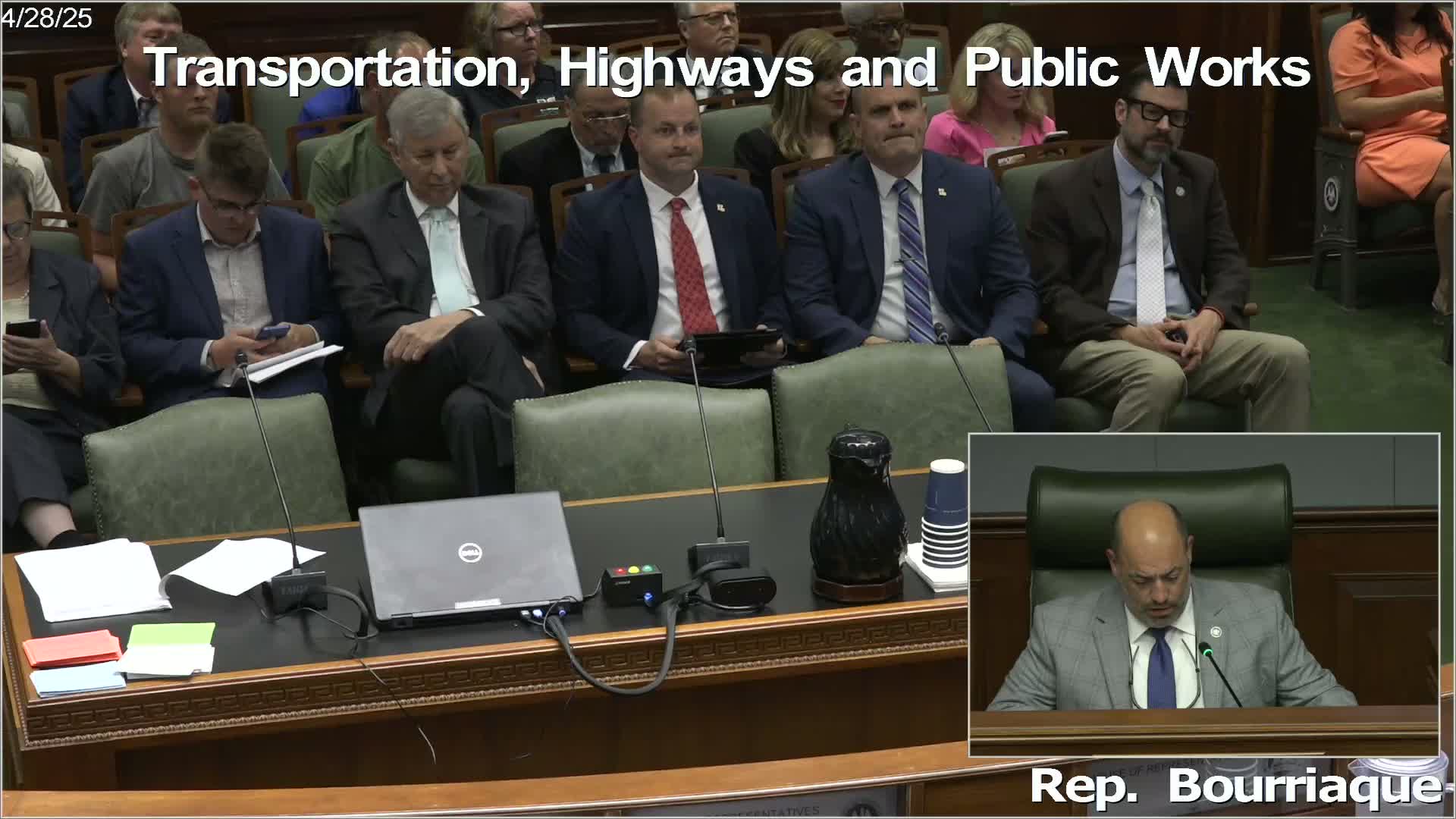House committee reports hands‑free distracted‑driving bill after hours of testimony
Get AI-powered insights, summaries, and transcripts
Subscribe
Summary
The House Transportation Committee voted without objection to report House Bill 519 favorably after testimony from law‑enforcement, insurance and business groups and hours of opposing public comment centered on civil‑liberty and fisheries concerns.
Chairman: The House Transportation Committee on April 28 voted to report House Bill 519, a hands‑free distracted‑driving measure by Representative Glorioso, favorably out of committee without objection.
The bill would make use of a wireless telecommunications device while operating a motor vehicle a secondary offense except in school and construction zones, and would add procedural safeguards intended to limit pretextual stops and searches. Representative Glorioso said the change preserves the current secondary‑offense structure outside school and work zones while allowing online payment of fines to avoid long traffic‑court appearances.
Why it matters: Proponents tied the bill to public‑safety and insurance outcomes. Tim Temple, Louisiana insurance commissioner, said passing similar legislation in other states correlates with fewer and less severe crashes but cautioned reductions in insurance rates are modest. Don Redmond of AAA said Cambridge Mobile Telematics data show Louisiana among the highest users of cell phones while driving and cited studies estimating large numbers of crashes could be prevented if phone use fell to the national average.
Opponents ranged from civil‑liberties and privacy advocates to residents who said the measure would invite pretextual traffic stops and penalize low‑income drivers. Attorney Edward Tarpley and Chris Alexander of the Louisiana Citizens Advocacy Group argued the law would be government overreach and questioned whether handheld calls alone cause the crashes cited by proponents. Dennis Burke, a longtime opponent, cited several academic and insurance‑industry reports that he said found mixed or inconclusive evidence that bans reduce crashes.
Committee action and statements: Representative Glorioso said he added safeguards on search and seizure, retaining the secondary‑offense status except in school and construction zones and prohibiting searches, device forfeiture or custodial arrest based solely on a cell‑phone violation. "A law enforcement officer shall not do any of the following based solely on probable causes of termination or a violation of this section," Glorioso said, listing limits on searches and custodial arrests.
Traffic‑safety and public testimony: AAA and the state commissioner of insurance testified in support, citing national and state data and experience in other states. Motorcycle safety advocates such as Jackie Lindsey of ABATE of Louisiana also supported the bill and gave personal accounts of crashes involving distracted drivers. Opponents included civil‑liberties groups and residents who warned of pretextual stops and increased insurance premiums for drivers who receive moving violations.
What the committee did next: Representative Schammerhorn moved to report the bill favorably. The motion carried "without objection," and the committee reported HB 519 favorably to the next stage of the legislative process.
Where it goes next: Reported favorably from the Transportation Committee, the bill proceeds to the full House calendar for further consideration and possible floor action.
